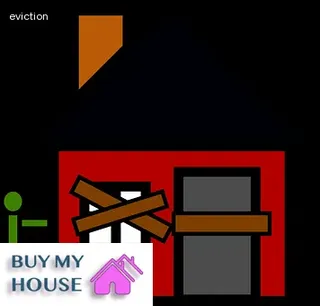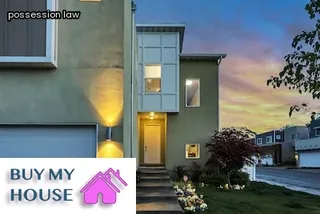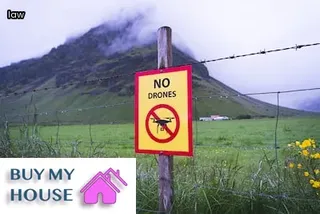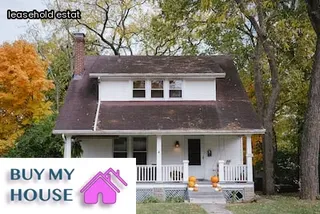Navigating Nevada’s squatter laws can be a difficult and confusing process for those who are unfamiliar with the legal landscape. Squatting is a practice of occupying abandoned or unoccupied areas of land or buildings without permission or without legal title.
In Nevada, squatting is illegal and carries potential penalties. These laws are designed to protect property owners from persons living on their land without permission and to ensure that only individuals who legally possess the right to occupy a given property may do so.
It's important to understand the laws surrounding squatting in Nevada, as failure to comply could put you at risk of criminal charges. Squatting in Nevada generally involves either residential or commercial real estate.
When it comes to residential real estate, squatters have no rights even if they have resided on the property for an extended period of time. If questioned by law enforcement, they will be asked to leave immediately and could face criminal charges if they refuse to do so.
Commercial properties are treated differently than residential properties, as squatters may be able to gain some rights if they can prove that they had legitimate possession of the property for an extended period of time prior to being asked to vacate by law enforcement or the owner of the property. Understanding Nevada squatter laws is essential for those looking to purchase real estate in the state, as it can help ensure that you are not buying a property with existing occupants who have unlawfully taken up residence there without your knowledge.

Squatting is a term that is used to describe the act of occupying an uninhabited property without permission from the owner or legal tenant. It can also refer to the unlawful occupation of someone else's real estate, such as an abandoned building or a vacant house.
Squatters typically do not pay rent and are not legally allowed to remain on the property for any length of time. In some cases, they may even enter the premises without authorization or knowledge of the rightful owners.
Squatters have been known to cause significant damage to the property, which can result in costly repairs and legal action taken by the rightful owners. Squatting is considered illegal in Nevada, but it is important for homeowners to understand their rights should they come across squatters on their property.
Knowledge of Nevada squatter laws could help protect homeowners from legal liability or financial loss due to squatters taking up residence on their land.
Squatting in Nevada, or occupying another person's property without their knowledge or consent, can have serious legal consequences. If a squatter is unable to prove that they had any legal right to the property, they will likely be charged with trespass and/or breaking and entering.
Depending on the state, this could be considered a misdemeanor or felony offense. In Nevada, squatters can also be liable for civil damages in the form of rent payments or property damage caused while occupying the premises.
In addition to criminal and civil liability, squatters may also face eviction by law enforcement authorities. The authorities may order them to vacate the premises immediately and may even impose fines if they fail to do so.
It is important that people understand all of their rights when it comes to squatter laws in Nevada so as to avoid any potential legal issues associated with squatting on someone else's property.

When considering a move to Nevada, it is important to understand the state's laws regarding adverse possession and squatting. Adverse possession, also known as squatter's rights, is a legal process that grants title of property to a person who has been occupying it without permission from the rightful owner for a set period of time.
In Nevada, in order for adverse possession to be established, the squatter must occupy the land for at least five years without interruption or interference from the real estate owner. Additionally, they must have paid all taxes on the property and have made significant improvements to it such as building structures or clearing land.
Furthermore, they must have done so in “good faith” with no intention of fraudulently claiming ownership. It is also important to note that adverse possession does not apply if there is an agreement between the real estate owner and the squatter or if there are written records that show an attempt by either party to transfer ownership of the property.
With these conditions in mind, understanding Nevada's laws on adverse possession can help potential homeowners make informed decisions about their purchases in the Silver State.
Exploring the Color of Title Claims Process is an important part of understanding Nevada Squatter Laws for Houses and Real Estate. Knowing how to identify a squatter’s rights under Nevada law can help protect homeowners from legal entanglements and potential property loss.
The Color of Title Claims Process identifies a person or entity who has possession and control of real estate, even if that person does not have an official deed or title. In these cases, the color of title claim gives the possessor certain rights, such as the right to remain in possession until the rightful owner takes back possession through eviction proceedings.
This process considers all relevant facts regarding occupancy and possession, including whether or not any rent or other compensation was paid by the possessor, how long they have been in possession, whether there is any evidence that they believed they had title to the property, and other factors. Understanding this process is essential to uncovering Nevada Squatter Laws for Houses and Real Estate.

Squatting, or occupying a property without the legal right to do so, can be a risky endeavor. In Nevada, squatting laws have been created to protect both the squatter and the original owner of the property.
Squatters may face criminal charges if they are found to unlawfully occupy a home or real estate. If a squatter is evicted by law enforcement, they may also be subject to civil penalties such as fines and other restitution payments.
Furthermore, squatters are not protected under landlord-tenant laws, meaning that they cannot claim any rights to the property beyond their basic occupancy rights. Moreover, any improvements made by squatters on an occupied home or real estate will not be legally recognized or rewarded in court.
Lastly, squatters may risk being liable for damages caused to a property during their stay regardless of whether these damages were intentional or unintentional. As such, it is important for prospective squatters to understand all of the risks involved with occupying another's home or real estate before taking any action.
The best way to avoid being a victim of squatters is to be aware of the Nevada squatter laws. Squatting occurs when individuals take control of a home or property without permission from the rightful owner.
It is important to know that squatting can be classified as a civil or criminal offense in Nevada, depending on the circumstances. Civil offenses may include occupying vacant land without permission or unlawfully claiming ownership of an abandoned house.
Criminal offenses can include illegally entering and occupying a home with the intent to commit theft, vandalism, or fraud. It is also important to note that squatting can be considered trespassing if it involves entering and staying on someone else’s private property without permission.
To avoid being targeted by squatters, homeowners should inform their local law enforcement agency if they suspect any illegal activity on their property, and consult legal counsel for advice on how to protect their rights as a homeowner in Nevada.

Protecting yourself from squatters is an important consideration when it comes to real estate, especially in Nevada. Understanding the state’s squatter laws is the first step in ensuring you are properly shielded from potential legal issues associated with unwanted occupants.
Luckily, there are several strategies that can help protect a house or other real estate property from occupiers who have no legal claim to it. First, ensure all entries and exits are securely locked and monitored regularly.
Additionally, keep detailed records of any communication with squatters and obtain copies of any written agreements made with them. Furthermore, document all evidence of trespassing or occupancy including photos or videos for use in court if needed.
Finally, consider setting up a system of notifications such as alarms or cameras to immediately alert you to any unauthorized entry onto your property. By taking these simple steps, you can greatly reduce the risk of squatters entering and occupying your Nevada real estate without permission.
When it comes to finding affordable insurance in Nevada, there are a few things to consider. First, it's important to understand the state's squatter laws when it comes to houses and real estate.
Taking the time to research these laws can help protect you from any potential legal issues that could arise. Additionally, understanding the different coverage options available for home and car insurance is key.
Comparing rates from multiple providers can be an effective way of securing the best deal for both types of insurance. Making sure your coverage meets your needs and that you're not overpaying is essential.
Knowing how deductibles, exclusions, and other factors affect your premiums can also help you find a policy that provides adequate protection at an affordable price.

Squatting is a crime, and it carries with it the potential for other crimes to occur. Squatters often trespass on property that does not belong to them, which can lead to vandalism of public and private property.
Thieves may take advantage of a squatter’s presence in order to break into homes or businesses located nearby. Additionally, squatters may steal power or water from utilities in order to sustain their living situation.
Depending on the state, squatters may also be at risk of being charged with fraud if they attempt to re-sell or rent out the home they are occupying illegally. Such actions could result in large fines and possible jail time if found guilty in court.
While squatting is already considered a serious offense, understanding additional associated criminal activities can help prevent further damage and harm caused by these individuals and parties involved.
In order to mount a successful squatter defense, it is important to understand the laws of your state. In Nevada, you must prove that you have been living in the residence continuously for at least one year before any legal action can be taken against you.
Evidence such as utility bills or tax records showing your name and address on the property are often accepted by courts as proof of residency. It is also beneficial to provide witnesses who can testify that you were living on the property continuously for a period of time.
Additionally, if there are any verbal agreements between yourself and the landlord regarding occupancy, they should be documented and included in your defense. It is important to keep in mind that squatting is still illegal even if you meet all these requirements and thus any evidence should be presented to the court in an honest and open manner.
Ultimately, having a thorough understanding of Nevada squatter laws is necessary for anyone looking to defend their rights as a squatter on residential property.

The Defenders of Property Rights is a knowledgeable legal advocacy organization that specializes in Nevada Squatter Laws. They are committed to helping individuals and families who have been affected by squatting on their real estate property.
The Defenders offer a variety of services, such as assisting with the eviction process, providing legal counsel, and advocating for the protection of private property rights. With their expertise in the laws surrounding real estate squatting in Nevada, they can help property owners understand their rights and ensure that their properties are protected from any further illegal activity.
Their team is available to answer any questions or concerns about squatters and how to best protect your property, as well as provide resources for those who may be facing a squatter situation. The Defenders also work hard to educate people about their rights regarding squatting so that they can make informed decisions when dealing with this type of problem.
When it comes to property rights in Nevada, there are certain laws every homeowner or prospective buyer should be aware of. Squatter's rights, also known as adverse possession, can be used by an individual to take legal ownership of a piece of real estate if they have occupied the property for a certain amount of time and meet other criteria.
To file a claim in the state, the squatter must demonstrate that they have been occupying the land continuously for at least five years without notifying or paying rent to the legal owner. Additionally, squatters must prove that they have paid taxes on the property during their occupancy and improved its condition in some way.
Furthermore, it is important to note that a squatter does not have any rights until a court makes a ruling on their claim. It is essential that homeowners in Nevada understand these laws so they can protect themselves from potential claims and ensure their property rights are respected.

Pest inspections are an important part of uncovering Nevada squatter laws for houses and real estate. It's important to be aware of the cost of pest inspections, as it can affect how a squatter chooses to make use of a home or property.
Pest inspections can cost quite a bit, depending on the size and condition of the home. This cost needs to be weighed against the potential savings that come with taking advantage of Nevada squatter laws.
If a property is not in good condition, then the cost of repairs may outweigh any financial gain from squatting on the property. However, if the house is in good condition and there are no major repair costs, then squatting can be an effective way to save money.
Additionally, being aware of local ordinances regarding pest control is also important for those considering taking up residence in an abandoned home or property under Nevada squatter laws.
Squatting has long been a contentious issue in Nevada, and many people are left wondering whether it is legal or not. The truth is that when it comes to squatting, the laws of Nevada can be difficult to decipher.
Squatting laws vary depending on whether you are dealing with houses or real estate, so it’s important to understand the specifics of each type of property. For example, squatters who occupy an abandoned house may have rights to some degree under Nevada state law.
However, squatting on real estate owned by someone else is generally illegal and can result in serious penalties. If you wish to uncover Nevada squatter laws for houses and real estate, there are several options available such as consulting with an attorney or researching online resources.
It is also recommended to seek legal counsel if you intend to take action against a squatter or if you yourself are facing eviction for squatting on someone else’s property. By understanding the nuances of Nevada's squatter laws, you can ensure that your rights as a tenant or homeowner are protected in any situation involving squatting.

Squatting in Nevada is a complex issue, and squatters have certain rights under the law. According to Nevada state squatting laws, a squatter can gain legal rights to a property if they occupy it for an extended period of time.
Squatters who remain on the property for at least 18 consecutive months are considered to have a "claim of right," which is similar to a tenant's lease rights. This entitles them to stay on the property until they are legally evicted by the owner.
Meanwhile, squatters also cannot be charged with criminal trespassing or theft in Nevada. Furthermore, squatters who have been living on the property for more than five years may be able to claim ownership of the land through adverse possession laws.
While this varies from county to county, Nevada generally requires that the squatter pay all taxes on the land while occupying it and that they use it actively and openly as their own home or business. However, it's important to note that these laws only apply when there is no clear owner of the land or when an owner has abandoned it for an extended period of time; otherwise, any attempt at taking ownership without permission could lead to serious penalties under state law.
In Nevada, adverse possession laws are in place to allow for the legal transfer of real estate property from one owner to another when certain conditions have been met. The requirements for adverse possession in Nevada are relatively straightforward but must be met in order for a successful claim.
To be eligible for adverse possession, the squatter must demonstrate that they have been using and occupying the land or real estate in question for a minimum period of five years. This use must also meet certain criteria: it must be exclusive, continuous, open and notorious, and done with the intent to possess the land as if it were their own.
Additionally, any payment made by the squatter towards taxes on the property is also taken into consideration when determining eligibility. Once these requirements have been fulfilled, a claim can be made to the court system to officially transfer ownership of the property.
Nevada has some of the most lenient and easiest squatters rights laws in the country. Many people are unaware that Nevada law allows for a squatter to gain ownership of a residence by occupying it for an extended period of time.
Squatters rights in Nevada may be acquired through adverse possession, which is a legal doctrine that allows someone to gain title to real estate if they occupy it continuously and openly and without permission from the original owner. In order to establish adverse possession in Nevada, a squatter must occupy the property continuously for at least five years, pay all taxes on the property during that time, maintain the property as their own, and make improvements or repairs to the property.
If all these criteria are met by a squatter then they can gain title to the residence or real estate property. This is why Nevada is one of the states with some of the easiest squatters rights laws in the US.